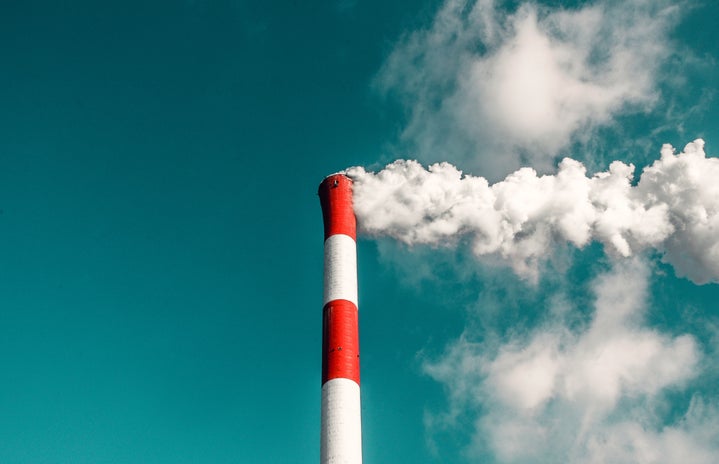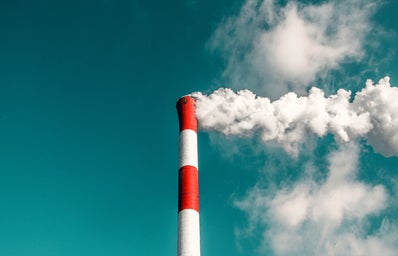‘Tis the holiday season, and you know what that means: binge shopping. Whether you’re purchasing presents for friends and family or taking advantage of those Black Friday deals to treat yourself, shopping is one thing most people have in common this time of year. That is, most people in America and other similarly developed countries. But what does a Christmas of consumerism mean for the rest of the world?
Until recently, I rarely wondered the answer to this question — which I’m sure is the case with many of my peers. However, an Instagram post from Peppermint Magazine featuring a photo of a landscape marred by discarded clothes recently caught my attention. There is truly a dark, damaging side to the flashy, fast fashion industry we can’t help but love, and it’s important to consider the repercussions of materialism — especially during the holidays.
So what is it about fast fashion that’s so harmful? Well, for starters, there’s the impact our rapid consumption has on the people making our clothes. Many have at least some inkling of the unpleasant truth about the origins of our wardrobe. In developing countries, labor is cheaper, and workers can start younger due to a lack of restrictions and child labor laws.
Big clothing companies take advantage of this by moving their textile factories to developing countries. These workers are subjected to horrendous conditions, facing death and injury for a wage so low they can barely afford the necessities. Because of how much easier it is to profit off of factories in developing countries, companies often turn a blind eye to this brutal reality, and their consumers tend to follow suit.
But this isn’t the only problem produced by the fast fashion industry. Not only do we put pressure on impoverished people with our relentless consumption habits, but we do a number on the environment as well. Trends come and go, and we get bored of our clothes. We look for ways to change it up, experiment with new styles, or worry about re-wearing the same outfit too often. All of this means that the brands that fuel our fashion frenzy need to make more and more clothing so we dispose of our old looks after shorter and shorter periods of time.
Naturally, this means an incredible amount of waste piles up alongside our clothes. Textile factories generate an unimaginable amount of greenhouse gases each year. I watched an episode of Netflix’s The Patriot Act titled “The Ugly Truth of Fast Fashion” which said that these factories often create more harmful gases than the vehicles that are used to ship their products around the world.
Not only that, but the fact that people throw away countless pieces of clothing each year means landfills become homes to mountains of garments worn for relatively short periods of time. Even items donated to charities can end up unwanted and unsold. This leaves the charities no choice but to trash them.
With all this new information, I’m sure many of you are wondering “But what can I do about this?” Well, after everything that I’ve learned, there are three things that I’m going to think about when I shop for clothes from now on. I recommend that you try to consider them too.
First, when you go through your closet, ask yourself if you’ve really gotten the most out of a piece before you toss it. Is there a new outfit you can make with it? Do you know someone (a younger sibling, perhaps) who may want it? Is there any way it can be repurposed? If all of us wear our clothes just a bit longer, it’ll go a long way towards slowing down the fashion industry and reducing the waste it produces.
Second, when you want to add to your wardrobe, try looking in a thrift store. Thrifting has become very popular, and it’s a great way to find good-as-new clothes for a fraction of the price. Not only that, though, it’s better for the environment! Fewer people buying new clothes means fewer clothes produced, and more people buying used clothes means fewer clothes going to waste.
Third, take a closer look at the brands you invest in. Do a bit of research to determine where the clothes come from, how they’re made, and what they’re made of. Many companies engage in performative “greenwashing,” which is when they try to seem environmentally aware in order to appeal to consumers. However, it’s easy for companies to claim to be sustainable when they’re actually just as bad as their competitors.
If you do any or all of the above-listed things, then you’re already on your way to making our planet a better place. And what better gift can you possibly give this holiday season?
Want to keep up with HCBU? Make sure to like us on Facebook, follow us on Instagram, check out our Pinterest board, and read our latest Tweets!


